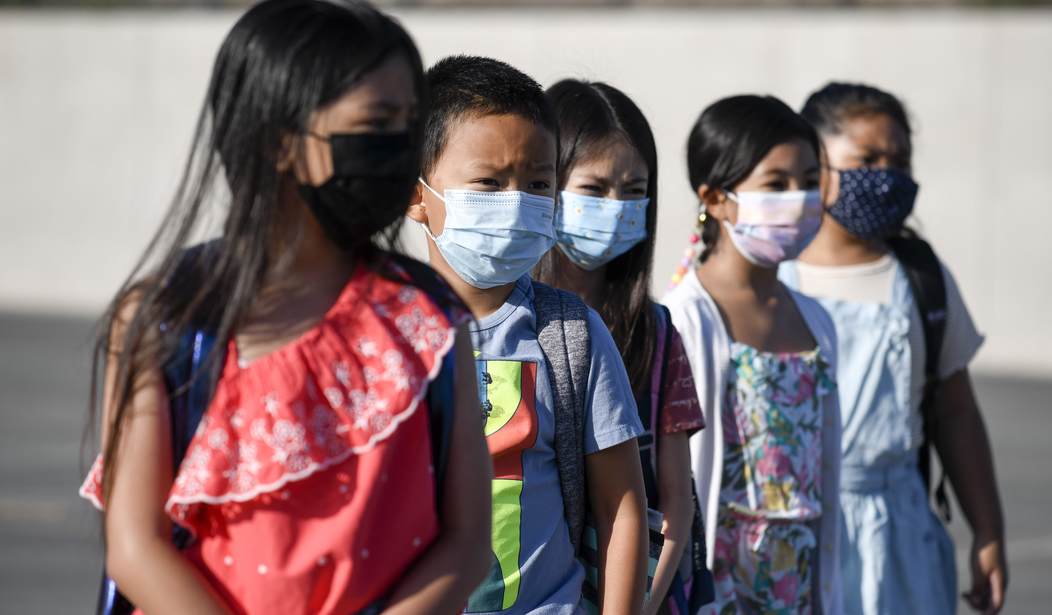You might recall that at the beginning of school lockdowns in 2020, teacher's unions were assuring us that remote learning would be a grand substitute for in-person classroom instruction. They were wrong.
You might further recall that once schools reopened, the same people were assuring us that kids who fell behind would have little problem catching up given just a few extra hours of work. They were wrong.
Now comes a new analysis from the testing non-profit organization, the Northwest Evaluation Association (NWEA). The group tested 7.7 million students in reading and math from the start of the pandemic to its end and reported some disturbing results.
Related: Teachers’ Union Head Randi Weingarten KO’ed in Congressional Hearings Over COVID School Closures
"Our findings make it clear that the road to recovery from the pandemic's impact on student achievement is far from over," reads an NWEA research brief released this week. "The effects continue to reverberate, even for the youngest students entering the education system years after the initial onset of the pandemic. At the end of 2021–22, we optimistically concluded that the worst was behind us and that recovery had begun. Unfortunately, data from the past two school years no longer support this conclusion."
"The NWEA found that test score gains continued to fall short of prepandemic trends for all but the youngest students during the 2023–24 school year," reports Reason.com.
It's not surprising that the youngest students would be least affected. They are incredibly resilient and deal with change a lot better than older students.
The practical effects of the school closures were catastrophic.
These score gaps mean that the average eighth-grader would need over nine extra months of schooling to catch up with pre-COVID achievement levels. The least affected students—third-graders, most of whom would not even have been enrolled in school at the start of the pandemic—would need 2.2 months and 1.3 months of extra schooling to catch up in reading and math respectively.
"At the end of the 2023–24 school year, across all grade levels, the average student will require the equivalent of 4.8 months of additional schooling to catch up to pre-COVID levels in reading and 4.3 months in math," the report reads. "Prepandemic rates of learning vary across grades and subjects. Younger students tend to make larger gains per year compared to older students, and math gains tend to be slightly larger than reading gains."
The federal government gave schools $200 billion to help children recover lost learning because of COVID. Even with all that funding, the Wall Street Journal reported that the overall effect on student outcomes was "modest."
“There were many reasons to think the money wouldn’t have a very big effect on kids learning because it wasn’t targeted and there were lots of other needs,” said Sean Reardon, an education researcher at Stanford University and co-author of the first paper. “But in fact it did have a significant effect on learning.”
That's because the $200 billion was given to schools to spend as they wish. The 74, a nonprofit organization focused on America’s education system, discovered that many districts have not used the COVID funds quickly or at all.
“Some have barely tapped monies advocates say are critical for academic recovery, while others have pumped millions of dollars into major classroom additions, upgrading athletic fields and other expenditures unrelated to the pandemic,” The 74 said.
At the time, I wrote, "Giving children a credit card and telling them to go shopping for anything they want is shockingly stupid. That's what Congress did with COVID aid for schools."
The question of accountability haunts me. The shocking lapse in critical thinking that led to this catastrophe needs to be examined thoroughly. People who had the power to close schools and those who didn't have the power but pressured those who did, need to be held accountable.
Until they are, this nightmare will be repeated.










